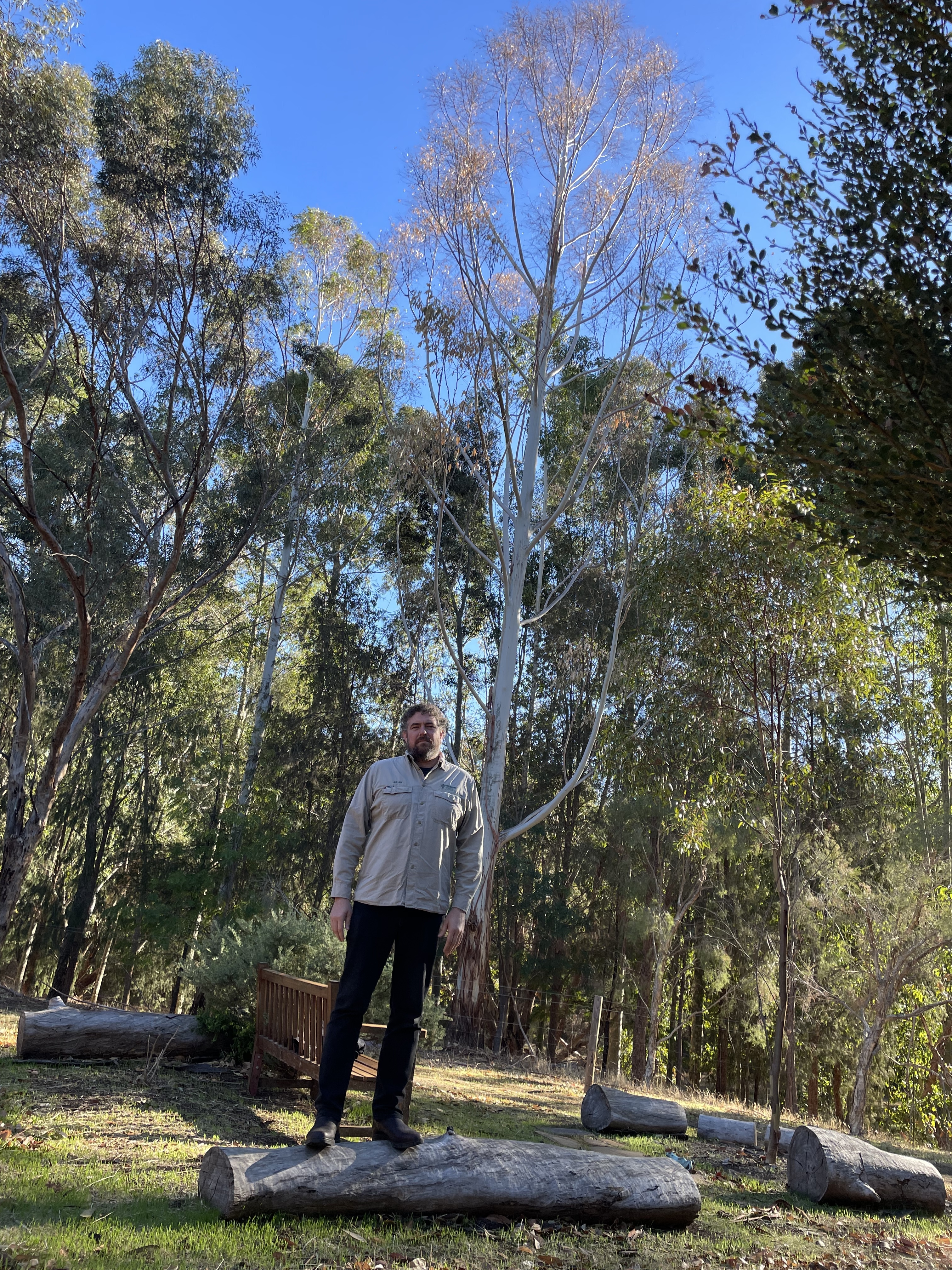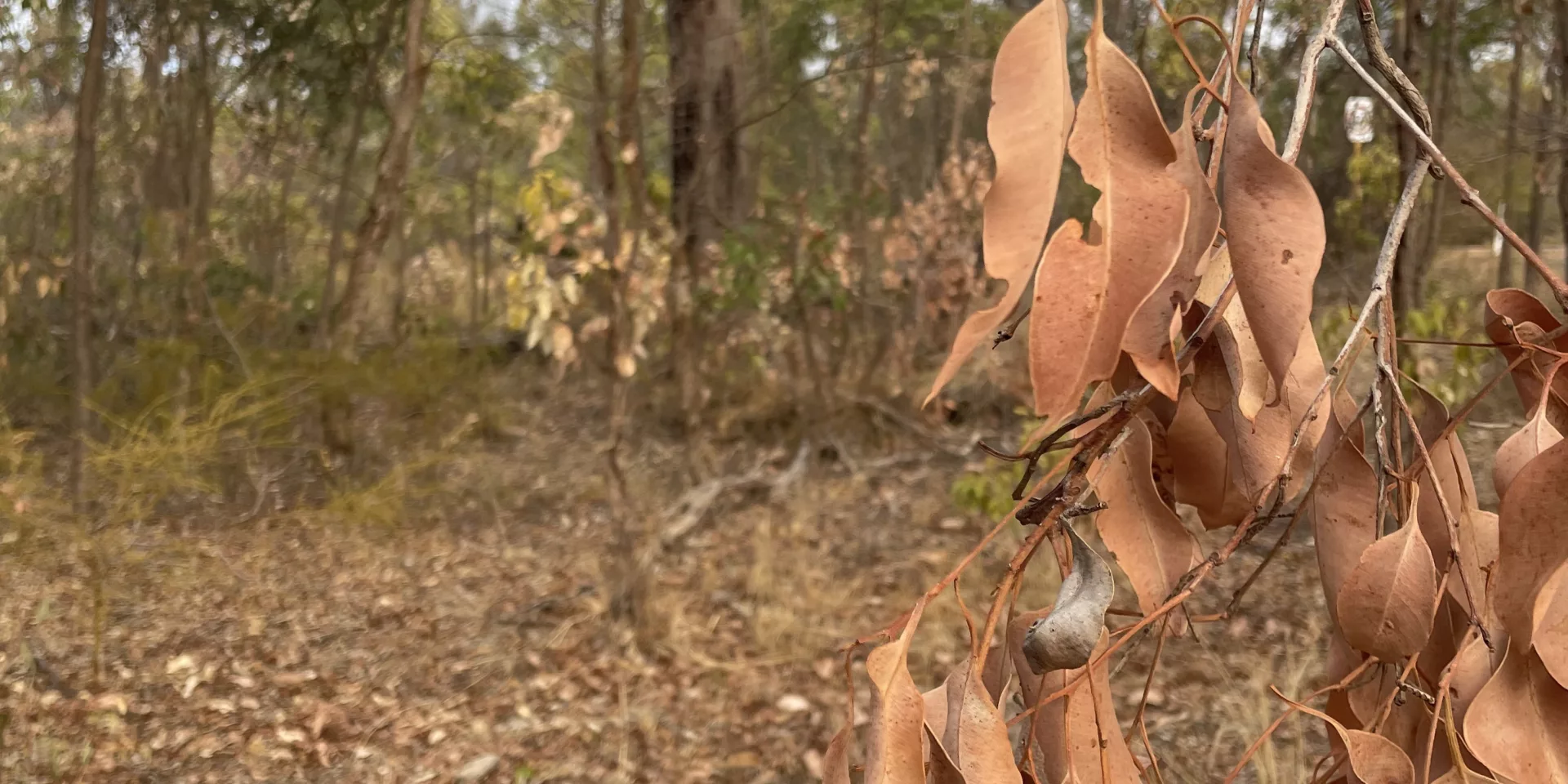Finally some rain has arrived in Perth after the longest, hottest Summer. As we emerge from the driest six month spell on record, we are sadly now facing a potential “forest collapse” event, where established trees and plants simply get so dry that they die.
“At Trillion Trees, we are deeply troubled by the emerging forest collapse that we are witnessing first hand,” says Trillion Trees Ecological Restoration Manager, Julian Beasley. “During recent monitoring visits to our project sites in Perth Metro and regions of the Wheatbelt, we have observed the dramatic effects of this event across multiple different plant communities, with many semi-mature emerging trees and understory shrubs succumbing to the record-breaking summer.”

Dead Trees in Western Australia Impact Biodiversity #
“This season will likely have a lasting impact on our local and regional bushland for many years,” added Julian. “The scale of loss highlights the need to increase our future ecological restoration endeavours across the southwest – this year more than ever we need to plant more trees to help replace and restore biodiversity in our unique and precious natural areas.”
Murdoch University ecologist Dr Joe Fontaine has recently likened the forest collapse event to coral bleaching on land, and there are serious wide reaching implications on wider ecosystems impacting breeding habitats and threatening entire species populations with extinction. "This is effectively land bleaching, it's a combination of the water and the heat but it's a similar idea," he said.
The south west of WA was identified as one of the first parts of the world to start a drying trend, beginning around the 1970s, and experts agree the region is drying out at a globally significant rate. Since the late 1960s, rainfall in the region has declined by up to 20 per cent overall, and the rate of decline is accelerating as illustrated during this last year where parts of Perth experienced a 40% reduction in rainfall. A hotter climate means you have more evaporation, drier soils soak up more water and trees need to use more water when it’s dry.
Forest Collapse in Western Australia will Impact Black Cockatoos
#
WA recorded its first forest collapse event in 2010/2011. “It coincided with a large decline in population numbers for many local bird species including our threatened Carnaby’s Black Cockatoos, so of course there are real concerns that this latest forest collapse spells very bad news for our native wildlife,” explained Julian.
“You might have noticed more dead trees around your area, and this year it's never been more important to replace as many as possible with endemic tree species,” added Julian. Restoring native landscapes by planting to replace last Summer’s terrible losses is at the heart of the mission of Trillion Trees Australia. “We're reshaping the way we work, carefully selecting the areas and species we plant, working to create local plant communities that are as resilient and climate adapted as possible,” continued Julian, who will begin planting season in June. “We’re also looking to increase our focus on planting sites on floodplains in the local area, where we have better chances of increased survival rates from available groundwater to our enhance our restoration work.”
How you can Help to Plant More Trees in WA
#
This winter there are many ways you can get involved and help to replace trees lost in the latest record-breaking summer.
- Connect with your local ‘friends of’ group to join restoration activities in nearby bushland.
- Contact your council and ask for more locally endemic trees to be planted in your suburb.
- Plant an endemic tree from our Native Plant Nursery in your backyard or switch your front lawn and verge to native shrub species.
- Get involved in community tree planting events in your local area, or join one of our Community Planting Days.
- Get your workmates together for the ultimate team building activity and join a Team Planting Day, or host a workplace fundraiser for our cause.
- Support Julian and the Trillion Trees team to plant more trees on your behalf, by donating to our cause.

